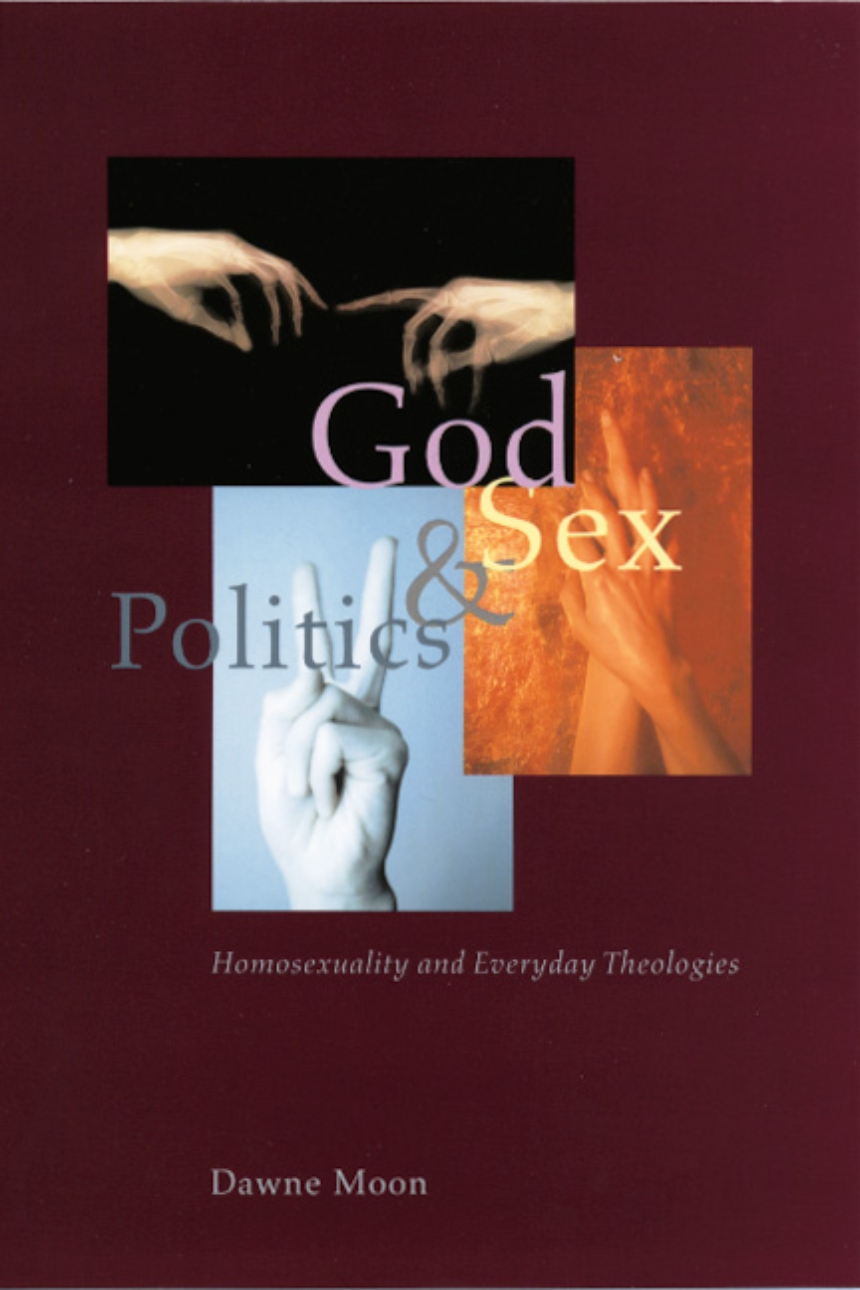God, Sex, and Politics
Homosexuality and Everyday Theologies
God, Sex, and Politics examines both sides of the church controversy over homosexuality to consider the ways in which people develop, in everyday thought and interaction, their beliefs about God and justice. Dawne Moon explores how members of Protestant congregations determine what is just and what is not, what is right and what is wrong, what is loving and what is sinful.
Through this compelling work we learn that the considerable turmoil surrounding homosexuality in churches has less to do with homosexuality than with the fear of weakening the church’s spiritual, communal solidarity. We learn too how the church mirrors the secular world—the fear of division and politics leads members to avoid conflict in the congregations Moon examines. And so, the Protestants who are the subject of her study avoid debating the key issue of whether homosexuality is sinful because of its potentially polarizing effects. The religious culture Moon uncovers is ultimately critical of politics and of the intense moral and social discord that members believe it entails.
God, Sex, and Politics will be of enormous value to sociologists of religion and anyone interested in religious controversies over sexuality.
Through this compelling work we learn that the considerable turmoil surrounding homosexuality in churches has less to do with homosexuality than with the fear of weakening the church’s spiritual, communal solidarity. We learn too how the church mirrors the secular world—the fear of division and politics leads members to avoid conflict in the congregations Moon examines. And so, the Protestants who are the subject of her study avoid debating the key issue of whether homosexuality is sinful because of its potentially polarizing effects. The religious culture Moon uncovers is ultimately critical of politics and of the intense moral and social discord that members believe it entails.
God, Sex, and Politics will be of enormous value to sociologists of religion and anyone interested in religious controversies over sexuality.
292 pages | 6 x 9 | © 2004
Political Science: Political Behavior and Public Opinion
Religion: American Religions, Religion and Society
Sociology: Formal and Complex Organizations, General Sociology, Individual, State and Society
Reviews
Table of Contents
Acknowledgments
Doing unto Others ... (A Theoretical Introduction)
1. Debating Homosexuality
2. Feeling the Spirit in Two Congregations
3. Scripture and Everyday Theologies
4. Community and Dissent
5. The Problem of Politics in Church
6. Body, Spirit, and Sexuality
7. The Truth of Emotions in Everyday Theologies
8. Gay Pain and Politics
Conclusion: The Perils of Pain and Politics
Notes
References
Index
Doing unto Others ... (A Theoretical Introduction)
1. Debating Homosexuality
2. Feeling the Spirit in Two Congregations
3. Scripture and Everyday Theologies
4. Community and Dissent
5. The Problem of Politics in Church
6. Body, Spirit, and Sexuality
7. The Truth of Emotions in Everyday Theologies
8. Gay Pain and Politics
Conclusion: The Perils of Pain and Politics
Notes
References
Index
